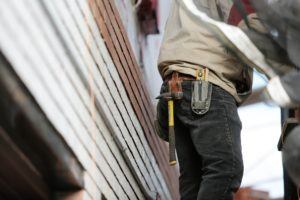 Most New Jersey contractors are not aware of the New Jersey Prompt Payment Act, but that doesn’t stop the act from applying to their business. This new act, which is codified under N.J.S.A. 2A:30A-2, applies to construction litigation when payment is sought either as a general-contract or a sub-contract, and is already important to the construction industry. The purpose of the act is to set standards for the payment of claims that relate to health benefit plans and dental plans.
Most New Jersey contractors are not aware of the New Jersey Prompt Payment Act, but that doesn’t stop the act from applying to their business. This new act, which is codified under N.J.S.A. 2A:30A-2, applies to construction litigation when payment is sought either as a general-contract or a sub-contract, and is already important to the construction industry. The purpose of the act is to set standards for the payment of claims that relate to health benefit plans and dental plans.
Under this act, real estate owners that hire contractors to make improvements to a property are obligated to make payments promptly or to object to said payments in writing to the primary contractors. If they fail to act accordingly, they are at risk of paying 1 percent above prime rate on the unpaid amount, along with potential responsibility for legal fees for the contractor. Of course, many people have a different definition of what “prompt” means. Under the act, contractors must be paid in full for work performed on a property within 30 days of the contractor’s submission of a final bill.
The act isn’t aimed against the property owners. In fact, owners are able to dispute some or all of the final billing by providing written notice of the discrepancies within 20 days of receiving the final billing. However, the work that is not being disputed must be paid during that time. This helps protect contractors from nonpayment while still giving owners the right to dispute improperly done work or negotiate disagreements of specific pieces on a bill.
Subcontractors also have protection under the PPA. Prime contractors are obligated to pay subcontractors, sub-subcontractors and materialmen within 10 days of completed work, unless it was otherwise agreed upon in a written contract, given the work has been performed in accordance with the written contract and the work has been accepted. In layman’s terms, if the contractor says the job is done and it matches with the agreed stipulations of the written contract, the contractor has 10 days to pay everyone.
In this case, the prime contractor can dispute the work done but must do so in writing. In fact, if there is nonpayment and a reason for that lack of payment has not been provided, the unpaid party is able to suspend performance under the contract without penalty. This is to help get lower tier contractors paid and not force them to wait under good faith in hopes for payment.
If you are a contractor that has been injured or payment is being withheld, contact our team at Bochetto & Lentz today.

